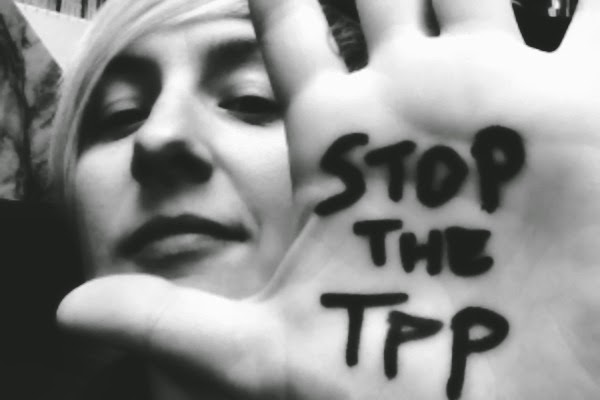September 14th, 2016
By Graham Vanbergen via Global Research
The global mainstream media have loudly hailed the stunning success of the peoples’ uprising against the Transatlantic Trade and Investment Partnership (TTIP), in light of its reported demise. But all is not what it seems…
An Abhorrent Political Deception
In the last few years, protests broke out all over Europe as unelected bureaucrats steamed ahead with the unpopular TTIP trade deal, even after the results of the largest ever consultation study in the EU Commission’s history resulted in a 97% negative response of 150,000 people. The emerging movement spawned enormous online activism never seen before, culminating in the largest petition in Europe’s history with a staggering collective of over 3.2 million signatures delivered by passionate foot-soldiers right to the epicentre of where the political elite inhabit in the EU. The beating heart of TTIP activism was Berlin, Paris and London. This is not to forget the huge protest effort made by citizens across almost all of the EU’s major cities.
When preparing for TTIP negotiations, 560 meetings took place between 2012 and 2013. Just 4% were represented by public interest and civil society. Unashamedly, the Commission allowed 92% of all TTIP meetings to be dominated by lobbyists and corporate trade associations. In total, these shadowy agitators amount to over 30,000 grey suits stalking the halls of the Commission HQ in the de facto capital of the European Union in Brussels.
[pro_ad_display_adzone id=”110028″]
In May of this year, Wikileaks confirmed that the TTIP amounted to “a huge transfer of power from people to big business.” Greenpeace Netherlands then leaked 248 secret pages of the controversial trade deal between the U.S. and EU, exposing how environmental regulations, environmental protections and consumer rights were effectively being “bartered away behind closed doors.” Tensions among civil society rose to fever pitch with the devastating news.
Der Spiegel Germany wrote “Protests Threaten Trans-Atlantic Trade Deal” as the leaks became public. With concerted effort activists seemingly brought the trade agreement to the brink of collapse within days. At the same time, Merkel’s grandly staged meeting with US President Barack Obama in Hanover was nothing more than showmanship. It aimed to show the strain of negotiations, as if somehow Germany (and therefore the EU) was going to get a better deal from TTIP and pacify the building rage of her citizens.
As if to rub salt into the wounds, a report by TruePublica published in The European Financial Review confirmed that corruption in the EU trading bloc had now reached 14 percent of GDP – a staggering €1 trillion. By now 70 percent of all European citizens believe corruption to be at the heart of their respective governments and the EU Commission itself, and that a corporate coup d’état is taking the place of the democratic principles that Europe fought so hard for, over generations.
Then, out of the blue, an unexpected announcement was made last week. The media on all sides of the spectrum is broadly going along with the story that French Prime Minister Manuel Valls and German Vice Chancellor and Economy Minister Sigmar Gabriel have agreed that negotiations between the EU and the U.S. on the TTIP have essentially failed. That’s it – the deal is dead. Hoorah!
- The Telegraph – “EU’s TTIP trade deal with the US has collapsed, says Germany”
- The Independent – “TTIP negotiations should stop, French government says”
- ZeroHedge – “The Americans Give Us Nothing”: France Effectively Kills TTIP’
- RT – ‘TTIP negotiations between EU and US have de facto failed’ – German economy minister”
Not so fast…
You don’t think that the American’s are going to let the biggest trade deal in human history fail just because 97% of citizens reject it do you? No, France and Germany just need a plan. After Brexit, Britain can stay out of the firing line of the protest movement for a while.
So, they looked to Japan. It had the same problem with its version of the trade deal similarly called TPP. Mass protests broke out as the same secret meetings gripped the political foreground. Its Prime Minister Shinzo Abe, instructed the coalition early in the year not to “forcibly” proceed with the TPP negotiations until after elections, Kyodo News reported. Abe genuinely “feared a voter backlash in the Upper House elections” amid the growing scandal of a 242 page leaked document laying bare the bones of the deal. Having been elected in June, Abe now intends to force the deal through “this fall”.
I made inquiries with sources close to the ground on the EU/U.S. TTIP deal along the same lines; was this simply a delaying tactic until after elections in 2017 for France’s Hollande and Germany’s Merkel? The response was not wholly unexpected.
The seemingly early celebration of the end of TTIP has also surprised us a bit. Despite last week’s statements by the German and French trade ministers and the way these have been portrayed, we are continuing to campaign against the deal.
In another exchange:
The declarations of French and German leaders aim to: divert attention away from CETA, reduce the numbers in the streets of Germany on 17th September, put TTIP on hold while elections take place in France, Germany and the USA. The fifteenth round of TTIP negotiations will happen in the first week of October… This has been confirmed by our US friends.
I then contacted Corporate Europe Observatory (CEO). It is a research and campaign group working to expose and challenge the privileged access and influence enjoyed by corporations and their lobby groups in EU policy making. They have been exposing the misinformation and propaganda of the EU Commission for years.
The CEO response to my same question was emphatic and quite clear:
Public opposition to CETA and TTIP has led French and German leaders to please voters with words against TTIP. Unfortunately, the next round of TTIP negotiations is scheduled for early October and no EU leader has publicly said he or she will vote against CETA in the EU Council in October. This is clearly not the end of TTIP and CETA, just the beginning of electoral campaigns in France and Germany.
Germany and France have taken the same stance as Japan on these trade agreements, they are not dead at all – they are lying.
I then spoke to Peter Koenig, an economist and geopolitical analyst. He is also former World Bank staff and worked extensively around the world in the fields of environment and water resources and posed the same question. He said:
Following a debate on PressTV Edition Française, where I was one of the interviewees, the focus was on the German and French Ministers’ expressed conclusion that TTIP negotiations failed. I wrote an article “The TTIP is Dead”, hoping that spreading of this ‘promise’ by the highest authorities of the two key countries in the EU would make sure among the European populace that any deviation from this ‘promise’ would be perceived as a lie and receive strongest public expressions of protest.
In the meantime, it has become clear that the TTIP and TISA ‘deals’ are not at all dead. In fact, shortly after the German and French announcements, Jean-Claude Juncker, the unelected President of the European Commission, declared majestically that for him the negotiations are not dead.
[pro_ad_display_adzone id=”110030″]
As Koenig explains, there are other means to infiltrate the TTIP into the EU — i.e. through CETA — which according to Jean-Claude Juncker, President of the European Commission (the executive branch of the European Union), doesn’t need the ratification of each EU members’ parliament. Then there is TISA, the even-more-secret ‘trade agreement’ between 50 countries around the globe. TISA could easily be used to clandestinely impose TTIP rules on Europe.
Nick Dearden, Director of Global Justice Now, confirmed Peter Koenig’s concerns in an article for The Guardian, entitled “Think TTIP is a threat to democracy? There’s another trade deal that’s already signed”.
TTIP is not alone. Its smaller sister deal between the EU and Canada is called CETA (the Comprehensive Economic and Trade Agreement). CETA is just as dangerous as TTIP; indeed it’s in the vanguard of TTIP-style deals, because it’s already been signed by the European commission and the Canadian government. It now awaits ratification over the next 12 months.
The one positive thing about CETA is that it has already been signed and that means that we’re allowed to see it. Its 1,500 pages show us that it’s a threat to not only our food standards, but also the battle against climate change, our ability to regulate big banks to prevent another crash and our power to renationalise industries.
CETA contains a new legal system, open only to foreign corporations and investors. Should the British government make a decision, say, to outlaw dangerous chemicals, improve food safety or put cigarettes in plain packaging, a Canadian company can sue the British government for “unfairness”. And by unfairness this simply means they can’t make as much profit as they expected. The “trial” would be held as a special tribunal, overseen by corporate lawyers.
What is missing from this statement is that any American corporation headquartered in Canada can sue any nation in the EU via CETA for the same reasons – namely, loss of ‘expected’ profits. They don’t even have to be Canadian corporations.
As Global Justice also confirms, Canada has itself fought and lost a plentiful and diverse range of legal cases brought by US corporations under the North American Free Trade Agreement (Nafta) for “outlawing carcinogenic chemicals in petrol, reinvesting in local communities and halting the devastation of quarries.” If TTIP doesn’t bring this horrific erosion of democratic power to the shores of Europe, CETA will. ‘Brexit’ will mean for nothing. It will be sold to the British people as a global trade agreement which will be heralded as a great success and supported by much of the media who themselves have a vested interest in such deals.
In the end, does it matter if it’s called TTIP, TPP, CETA, TISA or the like, they are all shadowy unaccountable acronyms designed to enrich the few via extreme neoliberal capitalism under the guise of free trade.
About the author:
Graham Vanbergen is the contributing editor of TruePublica.org.uk. He is also a featured columnist for The European Financial Review and regularly contributes to internationally recognised organisations such as; Global Research, Centre for Research on Globalization in Canada, Dissident Voice in the USA and Russia Insider, to name a few.
Graham specialises in explaining the failing and damaging systems that seeks to dismantle real democracy and capitalism. He is motivated by challenging extreme neoliberal thinking that is causing a wave of disruption as western countries move from one social, geopolitical and economic crisis to another and is inspired by the writing styles of award winning authors and activists such as Chris Hedges, John Pilger and Prof. Michel Chossudovsky.
Previously, Graham worked within the residential investment industry for over two decades at senior exec and board level for some of the world’s biggest financial, property and insurance institutions such as Nationwide Building Society, General Accident Insurance, Hambros Bank and Countrywide plc.
[pro_ad_display_adzone id=”110027″]








